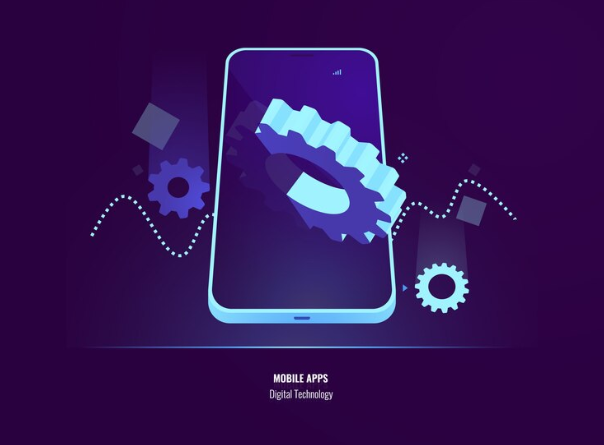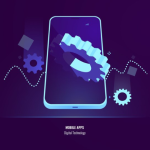
In recent years, the healthcare sector in USA has undergone a remarkable transformation, and much of this progress can be attributed to the rapid adoption of mobile technologies, particularly Android apps. These mobile solutions have revolutionized the way healthcare services are delivered, making them more efficient, accessible, and personalized for both patients and providers. Let’s explore how Android apps are playing a crucial role in transforming the healthcare industry in USA.
The Role of Android Apps
1. Improved Patient Engagement and Empowerment
Android apps have empowered patients by giving them easy access to their health data, appointments, prescriptions, and medical histories. Patients can now track their health progress in real time, manage chronic conditions, and communicate with healthcare providers directly through the app. This increased engagement allows patients to take more control over their health, improving their overall wellness.
2. Streamlining Healthcare Operations
Mobile apps have enabled healthcare providers to streamline their operations by reducing paperwork, enhancing communication, and automating various administrative tasks. Android apps for scheduling, patient management, and billing have reduced human errors, improved efficiency, and lowered operational costs for healthcare facilities. The integration of artificial intelligence (AI) in these apps is further optimizing diagnosis and treatment processes.
3. Remote Patient Monitoring
Android apps facilitate remote monitoring of patients, especially those with chronic conditions or in need of long-term care. Wearable devices connected to Android apps allow healthcare providers to monitor vital signs like blood pressure, glucose levels, and heart rate in real time. This data can be analyzed and shared with medical professionals, enabling timely interventions even from a distance. This has significantly improved patient outcomes and reduced the need for frequent hospital visits.
4. Telemedicine and Virtual Consultations
With the rise of telemedicine, Android apps have become a critical tool in providing virtual consultations. Patients can now consult doctors remotely, saving time and money while reducing the risk of exposure to infections in healthcare facilities. Android-powered telemedicine apps enable video consultations, voice calls, and real-time messaging, enhancing the convenience of healthcare services.
5. Prescription Management and Medication Adherence
Adherence to prescribed medication is a significant challenge in the healthcare industry. Android apps help address this issue by providing reminders for medication schedules and offering easy access to prescription information. These apps also allow patients to renew prescriptions and communicate with their healthcare providers for any adjustments, reducing the chances of medication errors.
6. Data-Driven Insights for Healthcare Providers
Android apps are equipped with powerful analytics tools that can process vast amounts of health data, providing healthcare providers with valuable insights. These insights can help in predicting patient outcomes, diagnosing diseases, and recommending personalized treatment plans. By using these data-driven approaches, healthcare professionals can offer better care and make informed decisions.
7. Access to Health Information and Resources
Android apps also provide a platform for educational resources related to health and wellness. Patients can access information about diseases, treatments, and preventive measures. This helps in increasing health awareness, reducing the spread of misinformation, and promoting healthier lifestyle choices among the general population.
8. Increased Accessibility and Affordability
The accessibility of Android apps on a wide range of smartphones, including budget-friendly options, has made healthcare services more affordable and available to the masses. By leveraging Android technology, healthcare providers can reach underserved populations in rural and remote areas, delivering quality care without geographical barriers. This has been a key factor in improving healthcare access for low-income individuals.
9. Data Security and Privacy
Android app development has prioritized the security of sensitive healthcare data, ensuring that patients’ personal and medical information is protected. Many apps are now HIPAA-compliant, ensuring that they meet the required data protection and privacy standards. Secure data storage, encrypted communication, and authentication features have made it safe for both patients and providers to exchange sensitive health information.
10. Collaborative Care and Interoperability
Android apps support interoperability between various healthcare systems, enabling healthcare providers to collaborate seamlessly. Through these apps, doctors, nurses, and specialists can access a patient’s complete medical history, share treatment plans, and discuss the most effective care strategies, ensuring that patients receive comprehensive and coordinated care.
Conclusion
The healthcare industry in USA is experiencing a transformative shift, with Android apps playing an instrumental role in enhancing the quality and efficiency of healthcare services. From improving patient engagement and enabling telemedicine to providing data-driven insights and improving accessibility, Android apps are shaping the future of healthcare. As more healthcare providers embrace mobile solutions, the demand for expertise in Android app development is also increasing. If you are looking for a trusted Android App Development company in USA, ToXSL Technologies is a leading Mobile App Development company in USA that specializes in building robust healthcare apps to meet the specific needs of the industry.






Leave a Reply